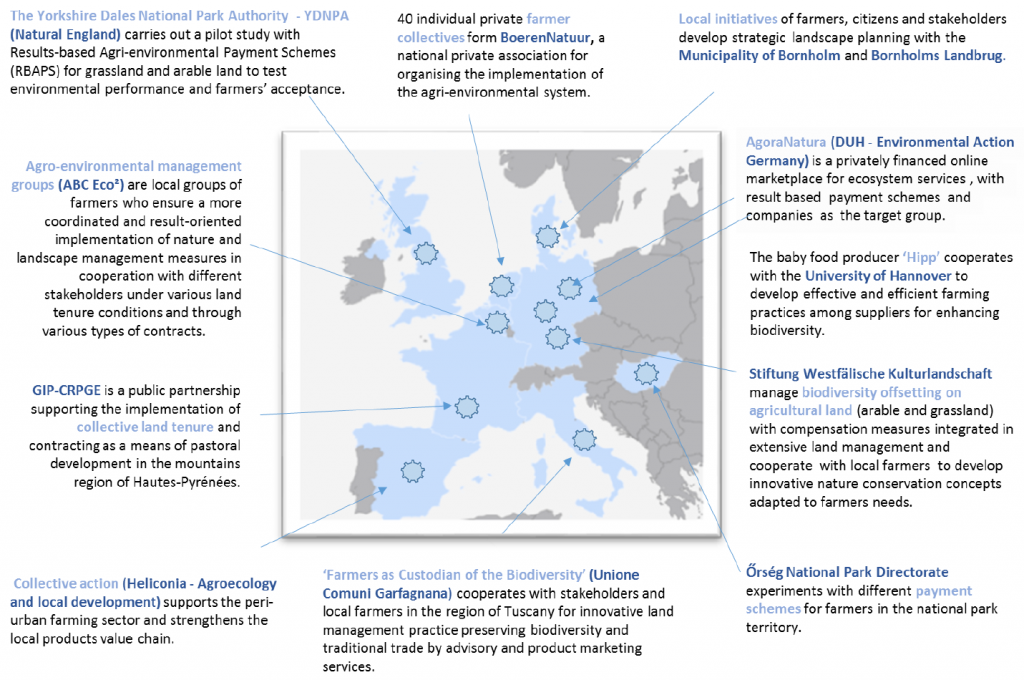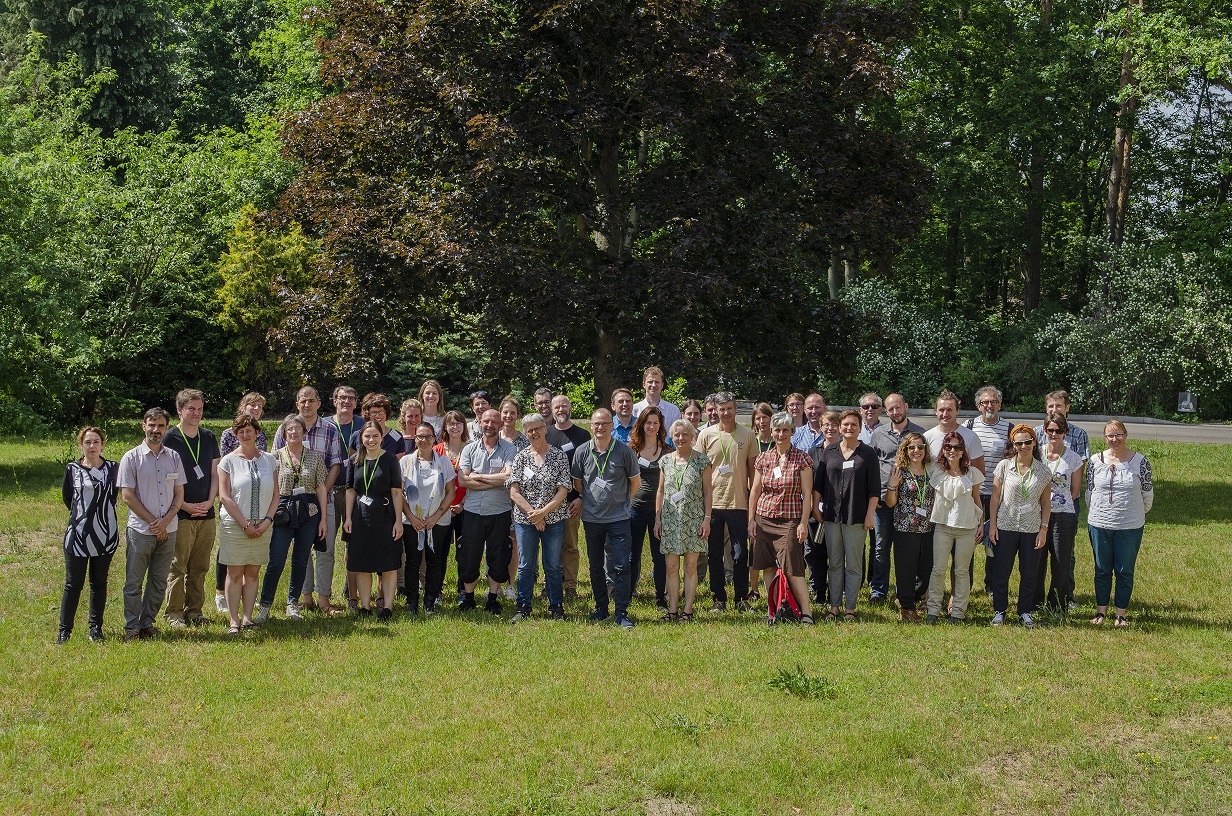Better targeted policy instruments can increase the capacity of agriculture to provide environmental public goods.
How this can be achieved?
Contract-based approaches such as publicly funded agri-environmental-climate measures (AECM) in the context of Rural Development Programs (RDPs) and the Common Agricultural Policy (CAP) or privately negotiated and funded Payments for Ecosystem Services (PES) or collective arrangements between all concerned actors can be an important component of a diverse policy mix that offers solutions to address the imbalance in support of an increased provision of environmental public goods. But, even though such contract-based approaches already exist, e.g. in the form of measure-based AECM with individual farmers, the provision of environmental public goods is not optimal. This calls for novel contract-based approaches which provide the right incentives to farmers to produce more environmental public goods, but also allow them to reduce the conflict to reconcile the profitability of their farms with sustainability objectives. This is even more important, as many farmers are currently struggling to maintain the economic viability of their farms, facing serious trade-offs between short-term profitability and sustainable production.
The main objective of Contracts2.0 is to develop novel contract-based approaches to incentivise farmers for the increased provision of environmental public goods alongside with private goods. Newly developed contract-based approaches should be environmentally more efficient, economically viable for farmers and support the longevity of contractual arrangements. To spur the provision of environmental public goods alongside private goods, Contracts2.0 will investigate particularly the following four types of contract-based approaches, both as stand-alone or combined approaches:
- results-based approaches (as opposed to practice-based approaches) to increase environmental
effectiveness of individual contracts, - collective approaches based on group contracts (as opposed to approaches based on individual contracts), or coordinated individual contracts to improve environmental outcomes at landscape scale,
- land tenure approaches in combination with economic incentives specifically to ensure contract longevity (e.g. land use obligations in combination with reduced rent), and
- value chain approaches based on the valorisation of environmental goods and services within the value chains (and among consumers in particular) to increase regional added value
In Contracts2.0 26 partners from across 12 European countries will work together for four years to create innovative contractual solutions, test their viability, and upscale them to national and local level policy making. The consortium involves both action partners, who work closely together with farmers and other land users to secure the provision of agri-environmental public goods, and research partners, who analyse the used and newly developed contract models from various aspects. From Hungary, the Őrség National Park Directorate is involved as action partner, while ESSRG acts as a research partner.

Novel contracts will be designed at local level contract innovation labs through a facilitated design thinking process. In parallel, policy innovation labs will be established at the national level, to engage policy experts and decision makers in the dialogue, organize feedback, and support the policy uptake of novel contracts. In the last year of the project, recommendations to EU-level policy – especially concerning the post 2027 CAP – will be delivered.
The project has received funding from the European Union’s Horizon2020 research and innovation programme under grant agreement 818190.
